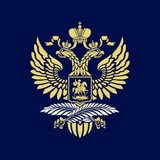Forwarded from Russian MFA 🇷🇺
🌐 Yevgeny Primakov, a prominent Soviet and Russian statesman, Foreign Minister of Russia in 1996-1998, was born #OTD in 1929.
Primakov’s arrival at Smolenskaya Square became a turning point in the foreign policy of our state, the start of the restoration of Russia’s positions on the international arena.
He foresaw the appearance of new centres of economic growth and political influence in the world and, in this sense, predicted the realities of multipolarity. He established the Russia-India-China format, which became the prototype of BRICS, the true embodiment of multipolar diplomacy.
❗️ On March 24, 1999, during his flight to the United States, Yevgeny Primakov found out that NATO countries launched air strikes on Yugoslavia. He immediately turned his plane around and returned to Moscow. That legendary U-turn over the Atlantic became a symbol of revision of relations with the West towards pragmatism and realism, and Russia’s transition to a multi-vector foreign policy.
#InMemoryOfDiplomats
Primakov’s arrival at Smolenskaya Square became a turning point in the foreign policy of our state, the start of the restoration of Russia’s positions on the international arena.
He foresaw the appearance of new centres of economic growth and political influence in the world and, in this sense, predicted the realities of multipolarity. He established the Russia-India-China format, which became the prototype of BRICS, the true embodiment of multipolar diplomacy.
❗️ On March 24, 1999, during his flight to the United States, Yevgeny Primakov found out that NATO countries launched air strikes on Yugoslavia. He immediately turned his plane around and returned to Moscow. That legendary U-turn over the Atlantic became a symbol of revision of relations with the West towards pragmatism and realism, and Russia’s transition to a multi-vector foreign policy.
#InMemoryOfDiplomats
#InMemoryOfDiplomats
📅 Today outstanding Russian diplomat Vitaly Churkin would have turned 72.
He devoted his life to defending our country’s interests on the global stage, navigating a storied career path from the translation department of the USSR Ministry of Foreign Affairs to Deputy Minister of Foreign Affairs of the Russian Federation. Over the years, he headed our country’s diplomatic missions in Chile, Belgium and Canada. He successfully conducted challenging negotiations within the Arctic Council on cooperation in the Arctic.
🎙In 1991-92, Vitaly Churkin served as Head of the Information Department of the Ministry of Foreign Affairs of the USSR, then the Ministry of Foreign Affairs of Russia. He pioneered the practice of conducting regular open briefings for foreign journalists, marking a historic milestone in Russian diplomatic communication.
As a special Presidential representative in the Balkans, Churkin made a significant contribution to the settlement of conflicts in the former Yugoslavia. Notably, he served as a mediator in negotiations that stopped the NATO airstrikes and proposed the deployment of Russian military units to Sarajevo, which later formed a UN battalion.
🇺🇳The high point of Churkin’s diplomatic career was his tenure as Russia’s Permanent Representative to the United Nations, a post he held for 11 years. Renowned for his extensive knowledge and adept humour, Churkin fostered and sustained good relations with his colleagues from other countries.
✍️ Foreign Minister Sergey Lavrov in his foreword to Vitaly Churkin’s memoirs, Lost in Translation: Vitaly Churkin was respected even by those foreign partners who did not always share Russia’s approaches to the key problems of our time. For example, one US Ambassador to the United Nations referred to him as “formidable as a foe, caring as a friend and fierce as a defender of Russia, the country he adored and strived to make proud.”
📅 Today outstanding Russian diplomat Vitaly Churkin would have turned 72.
He devoted his life to defending our country’s interests on the global stage, navigating a storied career path from the translation department of the USSR Ministry of Foreign Affairs to Deputy Minister of Foreign Affairs of the Russian Federation. Over the years, he headed our country’s diplomatic missions in Chile, Belgium and Canada. He successfully conducted challenging negotiations within the Arctic Council on cooperation in the Arctic.
🎙In 1991-92, Vitaly Churkin served as Head of the Information Department of the Ministry of Foreign Affairs of the USSR, then the Ministry of Foreign Affairs of Russia. He pioneered the practice of conducting regular open briefings for foreign journalists, marking a historic milestone in Russian diplomatic communication.
As a special Presidential representative in the Balkans, Churkin made a significant contribution to the settlement of conflicts in the former Yugoslavia. Notably, he served as a mediator in negotiations that stopped the NATO airstrikes and proposed the deployment of Russian military units to Sarajevo, which later formed a UN battalion.
🇺🇳The high point of Churkin’s diplomatic career was his tenure as Russia’s Permanent Representative to the United Nations, a post he held for 11 years. Renowned for his extensive knowledge and adept humour, Churkin fostered and sustained good relations with his colleagues from other countries.
✍️ Foreign Minister Sergey Lavrov in his foreword to Vitaly Churkin’s memoirs, Lost in Translation: Vitaly Churkin was respected even by those foreign partners who did not always share Russia’s approaches to the key problems of our time. For example, one US Ambassador to the United Nations referred to him as “formidable as a foe, caring as a friend and fierce as a defender of Russia, the country he adored and strived to make proud.”
